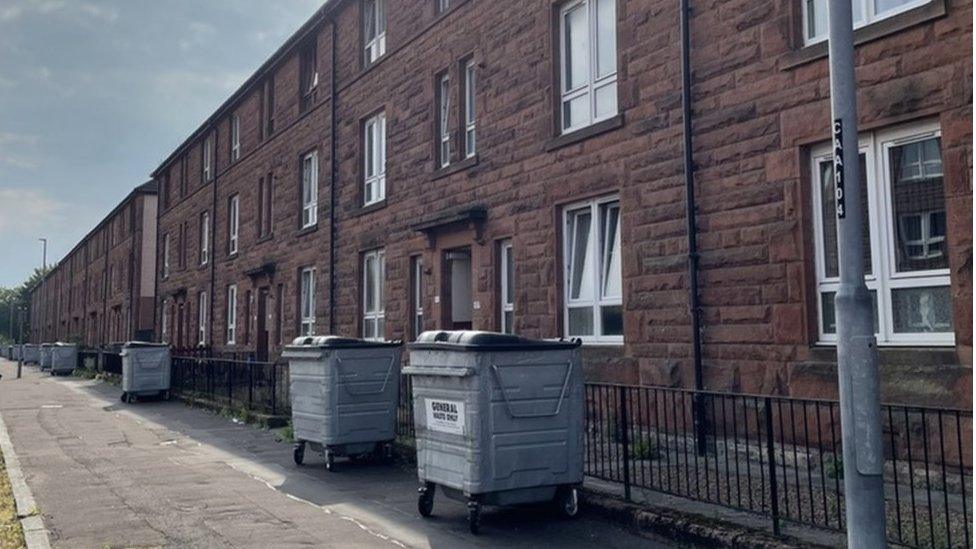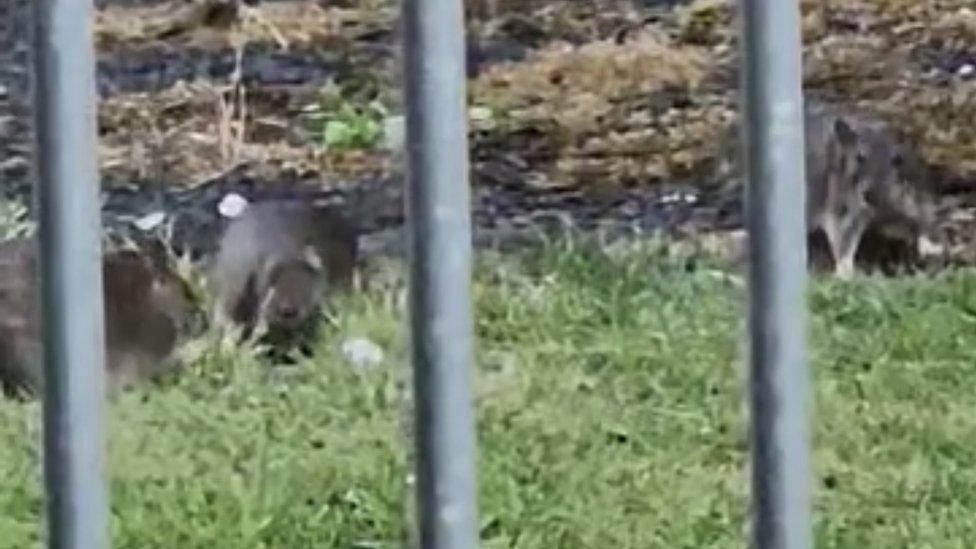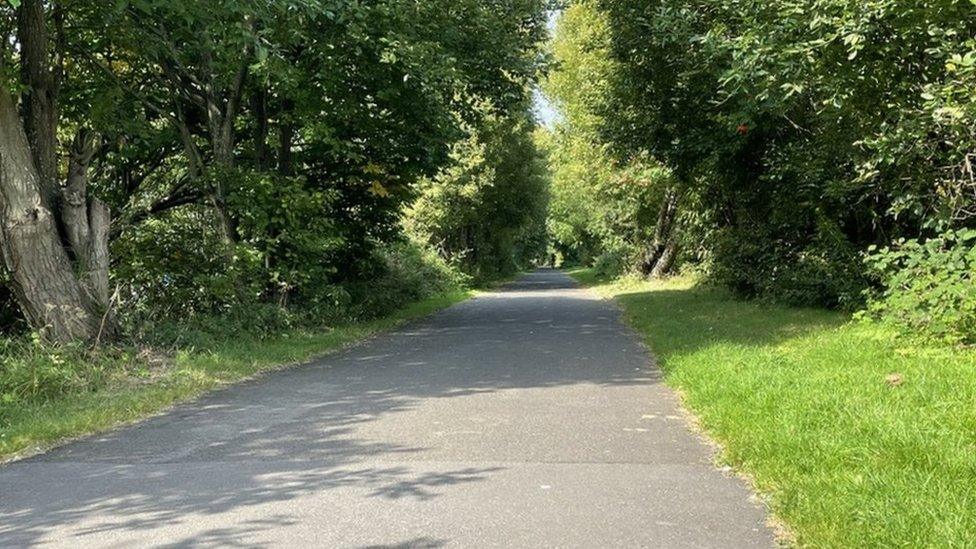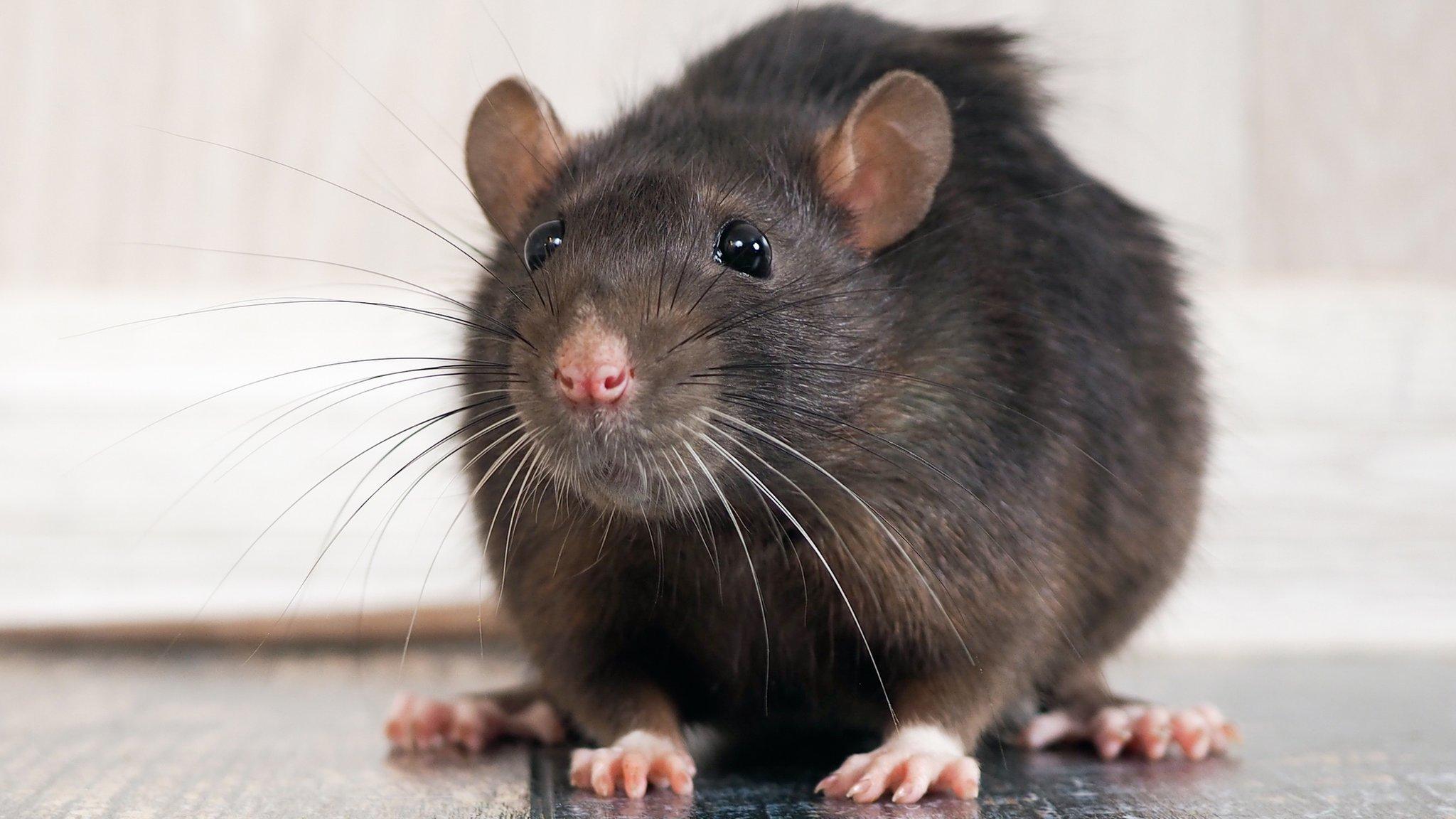Binmen say rat-infested street in Glasgow is a safety crisis
- Published
Rats can be seen scavenging in bins on the Scotstoun street
A Glasgow street has become "overrun" with rats, with binmen unable to collect rubbish from the back courts.
Residents on Earl Street in Scotstoun say they are being ignored by the council, with responsibility for the infestation being "passed along".
The GMB Scotland union warned that it was a "severe health and safety crisis" for refuse workers.
Bins have been moved to the front of the street, but residents say they still see the rodents in their gardens.
Michelle Morton, who lives in a ground-floor flat with her husband and children, claims a rat even climbed in her window.
"I can't shut my bathroom window because we have mould, and then the other week we had a rat climbing in," said Mrs Morton.
"I see them every single day: really large rats and newborn, bald, baby rats.
"A couple of days ago I saw about 12 of them out the back, and I've seen them run along my front railing before too."

Bins will be kept in front of the street until the infestation is fixed
It is believed that the rats are nesting nearby in an embankment under a cycle path, where small burrows can be seen.
Residents said it was a growing problem that was now out of control.
Mrs Morton said she had spent around £3000 on preventative measures in recent years, including power washing and bleaching areas of the back garden and removing all of the bushes.
"It's the residents who are suffering," she added.
"I won't ever let my children go in the garden because the rats aren't even scared of people, they don't run away if you go near them or knock the window."
Mrs Morton said she will not go into her back garden unless she is armed with a pole.

Residents claim they are being ignored by the council about the rat infestation
Norma Bellis, 76, originally from Scarborough, said she was not told about the infestation when she moved into her ground-floor flat on Earl Street a couple of weeks ago.
"Whenever I take my dog a walk, I see at least two or three rats," she said.
"I can't let my dog out the back garden because the rats aren't scared of humans or dogs and she could get bitten."
Andy Burnett, warehouse manager at Forest Furnishing on South Street, said it has been "a problem for the entire area for years".
He said: "We instantly got pest control in and we got rid of them.
"But it's impossible to sort as no-one can agree on who owns the land."

The cycle path is on top of the embankment
Chris Mitchell, branch convenor for the GMB, said he had repeatedly raised the issue with Glasgow City Council.
He told BBC Radio's Good Morning Scotland programme: "Our members were going above their call of duty trying to remove the refuse because it was having a detrimental affect on the residents.
"But it's got worse and worse and I've had to pull our members away for health and safety reasons.
"They were seeing rats there every single day, running over their feet and shoulders and residents coming out screaming.
"And then the council blame the housing, housing blame the residents, residents blame the cleansing.
"At the end of the day, this should've been sorted two years ago. It's a severe health and safety crisis."
Poor condition
He warned that Earl Street is "just the tip of the iceberg" as refuse workers had noticed an increase in rats across the entire city.
Glasgow City Council said it was working with the local housing association to address this problem.
It said some bin courts had been kept in "poor condition" which had attracted rats.
The council said work was undertaken to keep them in good order, but waste continued to be disposed of "inappropriately".
A spokesperson said: "While the bait laid down by our pest control team takes effect, bins have been stationed on the street on a temporary basis.
"We are hopeful our pest control treatments are having an impact but we will continue to monitor this situation .
"As part of our health and safety procedures, we would not send our bin collection staff into areas of known infestation."
Related topics
- Published16 March 2021
